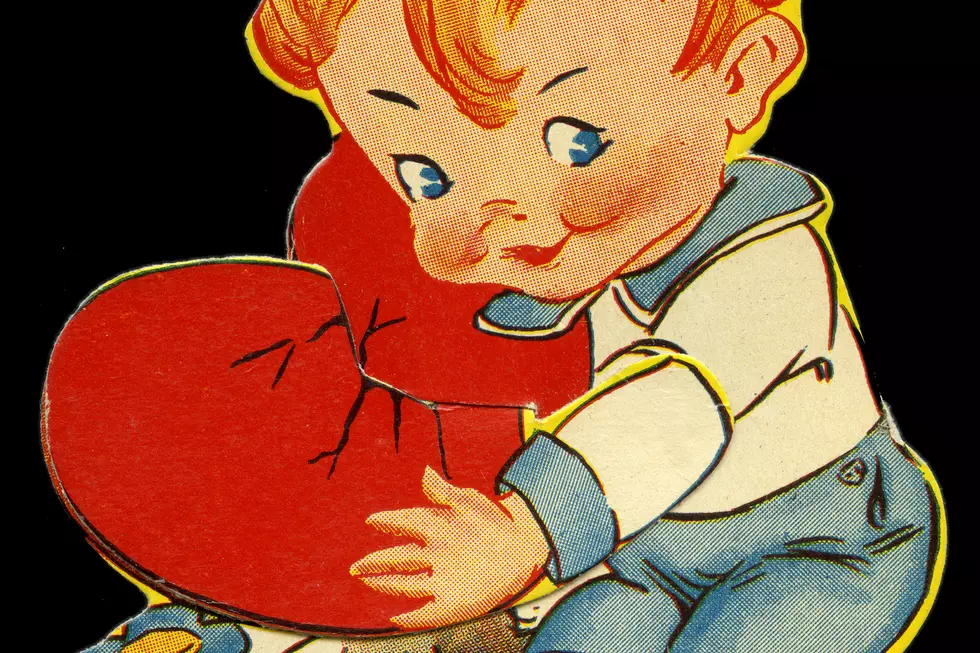
X Singer Exene Cervenka on Punk’s Past, Present and Future
Resplendent in brown hair blasted with thick blonde streaks, X lead singer Exene Cervenka is somewhere else when she performs. As the band rips through its masterful cover of Jerry Lee Lewis' 'Breathless,' she looks out into the audience, holds her hands close to her and closes her eyes. The sigh punctuating each line of singing floats off of her lips into the audience, tasting of raw sugar. “You leave me … ahhhh breathless!”
Legends of the L.A. punk scene, X rose from the bowels of the Masque -- the West Coast equivalent of CBGB -- and found national recognition. Up front was Exene Cervenka, far from "just some chick singer." Cervenka and her voice, along with singer/bassist John Doe, guitarist Billy Zoom and drummer DJ Bonebrake, held the band’s sound together, giving it that raw, DIY edge the punk era was known for.
The band has been together (on and off) since 1977 and recently completed their ‘No Principals’ tour with Blondie. While they have no definite plans to record new music, they continue to tour, and West Coast fans can catch them in November and December with fellow L.A. punk alums the Blasters. Diffuser talked to Cervenka about the past, present and future of punk, touching on what it is, what it isn’t and what it will never be again.
What initially drew you to punk?
I was a different type of person long before that. I never fit in with anything. I was just a weirdo, you know? It was just kind of hard back in the mid-‘70s to be different because people didn’t know how to interpret it. So it was just a bunch of people like me who didn’t fit in. It wasn’t a uniform or an ideology or a religion. It was just a bunch of weird, crazy people who liked interesting music and had different, crazy backgrounds. It was just a free-for-all of interesting people, and that’s what drew me to it.
That was a time in which people could invent and create and be sort of free and independent, and it’s not like that now. I think of that as a time that’s gone. Punk wasn’t a musical style. The Plugs, the Blasters, the Weirdos, the Go-Go's, X: Everybody sounded completely different. If you think in terms now, of a collective of people all doing a different version of independent thinking, I don’t think it exists, does it?
What was it like to be female in the 1970s punk scene?
It was pretty easy. The women that were on the radio -- Janis Joplin, Grace Slick, Pat Benatar, Linda Rondstadt -- they were just women who had talent, who could sing or who could play or who could write songs or who were cool. What has happened is men and women are pretty much just sexual objects with no other value. Back then, it was way better, ‘cause you could actually have a personality if you want. ‘Oh, I like you because you’re cool, or I like the way you sing or I like the way you write songs,’ or whatever it was. Now there’s no hope with that ever. There is no woman ever gonna be successful who isn’t a total manipulation of the powers that be. That’s kinda sad. I liked the ‘70s better.
How did you initially get into music?
I never sang as a kid, and there was no reason to. I never had any dreams of becoming a singer. I grew up in Illinois; you don’t dream of becoming a singer. Nowadays, people do because they think that 'American Idol' and all that’s real. I just met John [Doe], and I was a writer, and he liked this song. I wrote this song just for fun. I didn’t play an instrument, but I sang it to him, and he thought it was really great. He said, "You know, I’ll put a bass track on there, and I can sing it in my band." I met this guy Billy, and we have this band, and he was telling me about punk. I knew about the Ramones and stuff. I'd just moved there. I didn’t know there was a punk scene. I said no, because then I realized, if he thinks that this song is good, maybe it is good. It’s the only thing I have of value. Maybe I should hang on to it. He said, "OK, well, maybe you wanna sing it in my band." And I said, "Maybe, OK."
What do you think makes a good performance?
Inspiration, and the total loss of the here-and-now, so that you’re totally transported. That you transport the audience as you become transported by the music, or whatever the art form is. You’re not self-conscious; you don’t even know what you’re wearing or what you’re doing, you’re just all over the music.
To get as close to that as possible, as often as possible, is my goal, always. To get people to go there with me is my goal, always. I think that’s why punk rock was so good, because it was all about that. It was about total abandon. It wasn’t about fashion -- although later, it became seemingly about fashion, strangely. It wasn’t about beauty. It wasn’t about sex. It was just about getting caught up in a group freedom kind of thing, total self-expression, abandon and whatever it felt like being.
What were things like at the Masque?
I remember how it was so adolescent. There were so many chicks that were part of that scene, boys and runaways and stuff. The whole thing was very loose and crazy. There would never be more than, like, 75 or 100 people in there at one time, I don’t think. It had all these weird rooms. The bathrooms would work, but everything else was just like bare lightbulbs and broken cement and kids and doors and rooms. It was pretty scary to some people. It was down an alley, so there was a lot of hanging out in the alley. Gang members would come and we’d smoke angel dust and stuff like that. They’d be in their old- fashioned Chevy cars, and we’d have our old-fashioned Ford cars. Everybody had old cars. It was cheap, too, because you could buy a six pack of beer for like a couple of dollars.
It was pretty much a collective of people helping each other out. No one got hurt down there; no one got attacked. Women didn’t get raped. It wasn’t sexual predators. It wasn’t like now where men just think that women are sex objects. I’m sure kids had sex down there, but it wasn’t like it is now. I would be terrified to go into a place like that now. It would be horrible. You would not be in a band. But we took care of each other then. There were a lot of women in that scene. A lot of gay people. All kinds of people. Everybody was accepted so it was good.
What keeps you coming back to X? What do you get from X that you don’t get from the other bands you’re in?
Well, I don’t have to live in a cardboard box. Other than that, you mean? I can begin to pay my bills for one thing. Not that that’s why I do it, but that’s one thing I get from it. I like it. I value it so highly because I know that I may do it only one more time in my life, or 10 more times, or a hundred more times, and I will really miss it when it’s gone. So I really appreciate every second when I look over and see them playing, I just get so happy that we’re still doing it. It’s profoundly special.
More From Diffuser.fm









